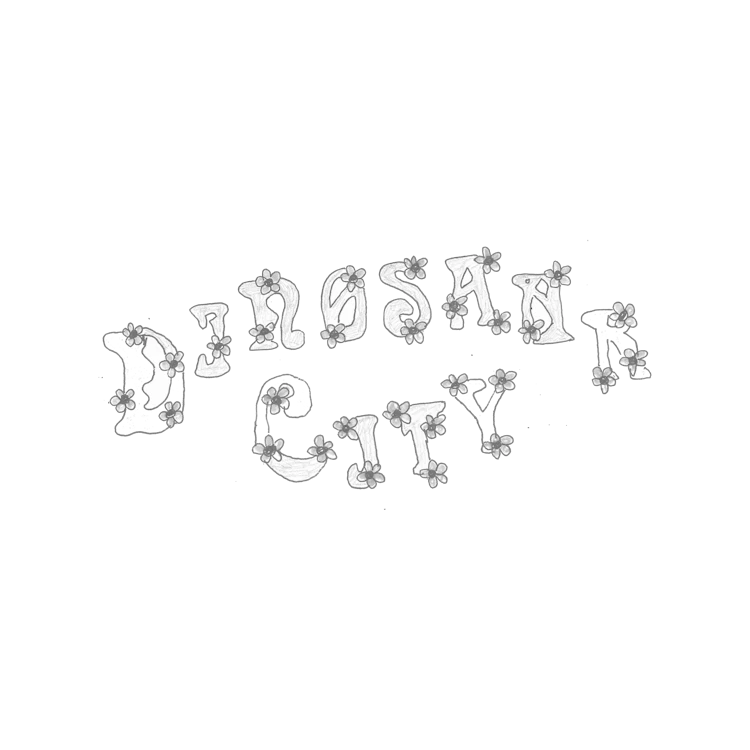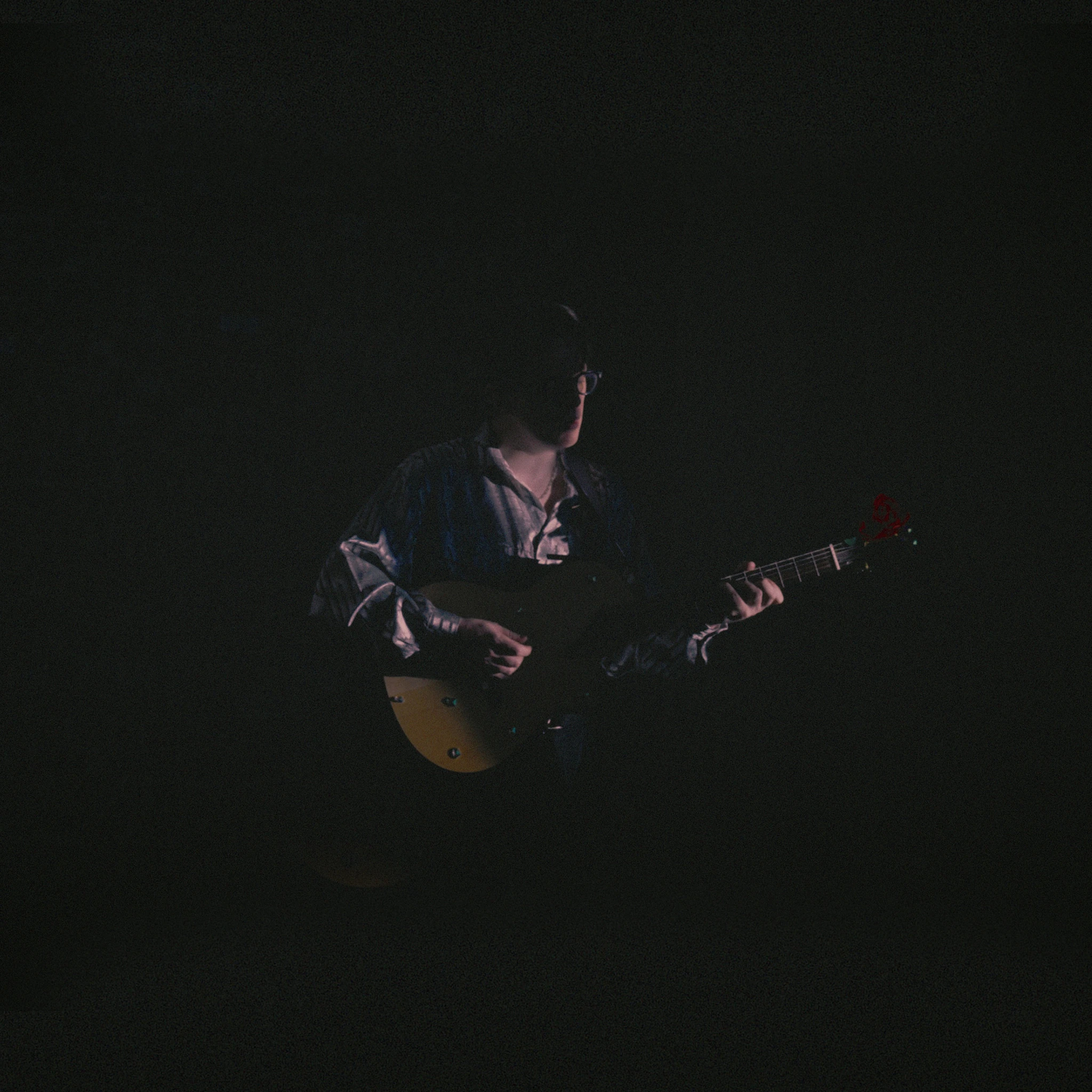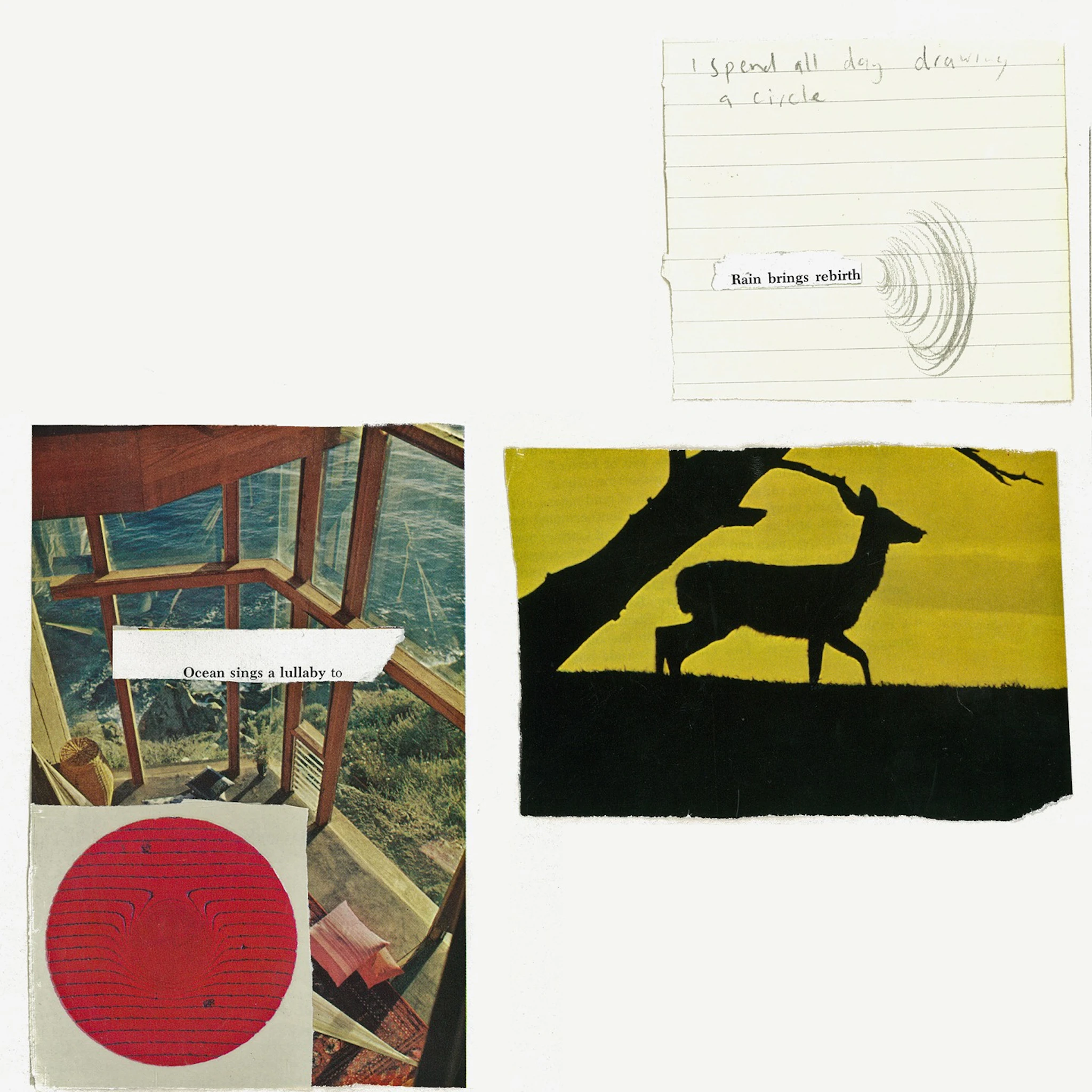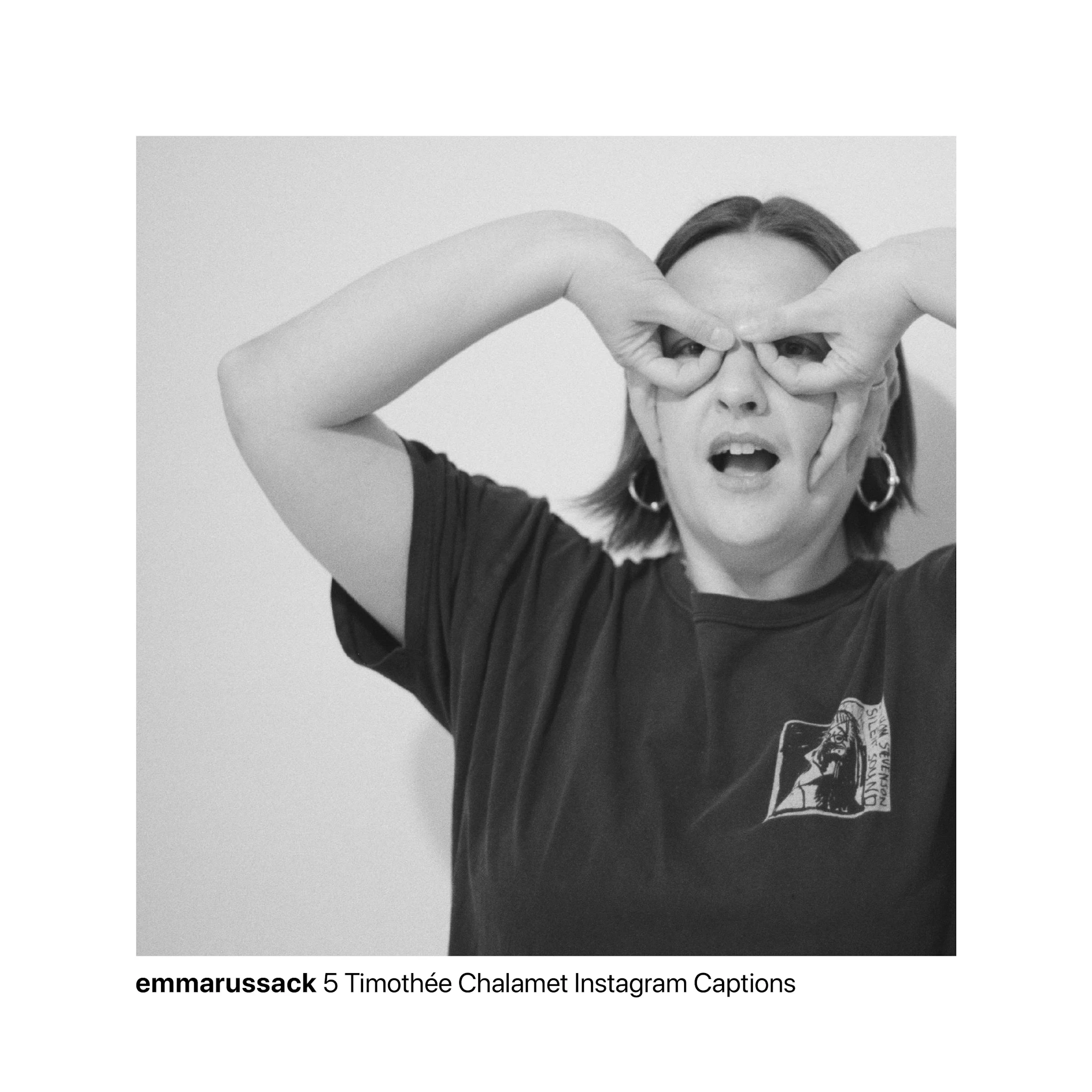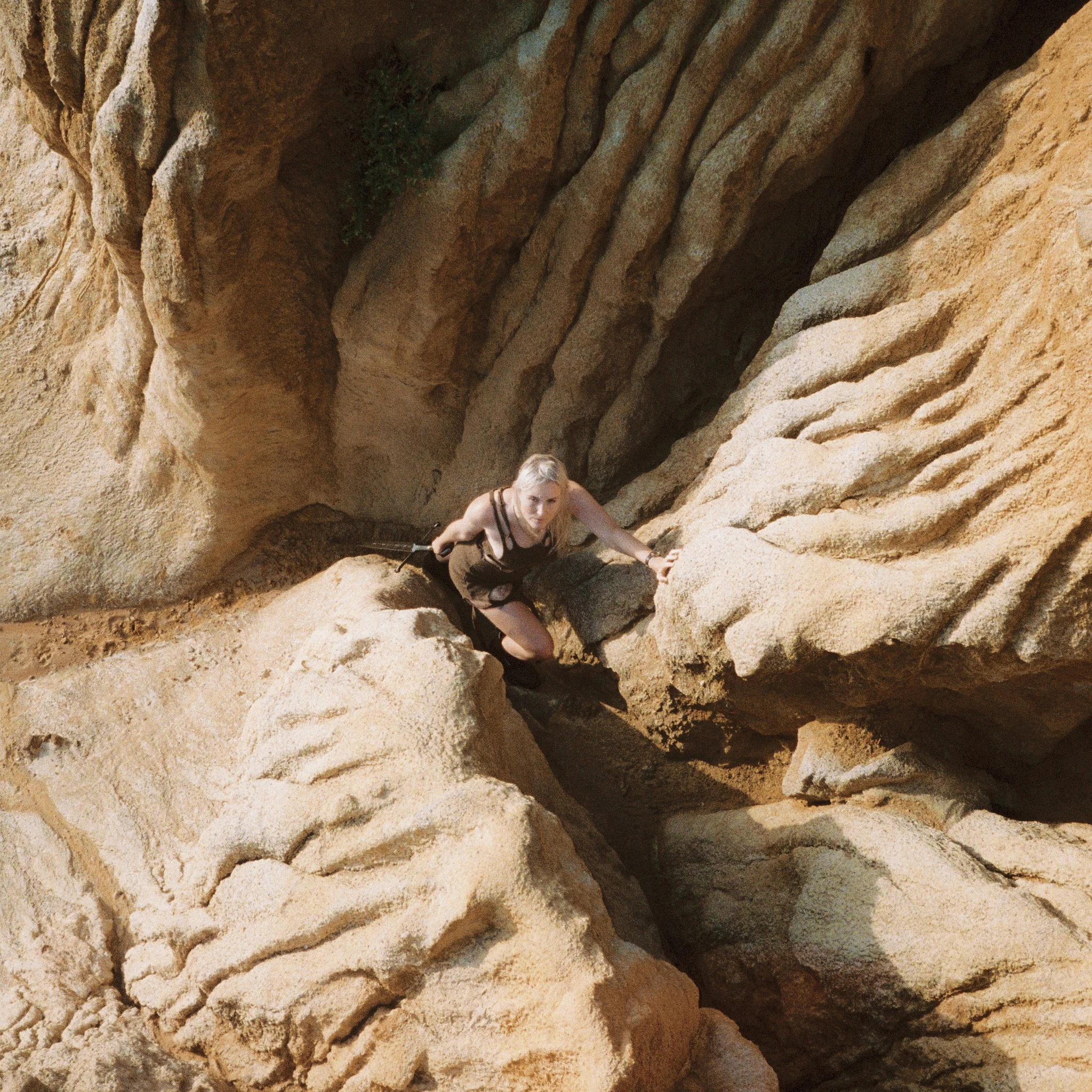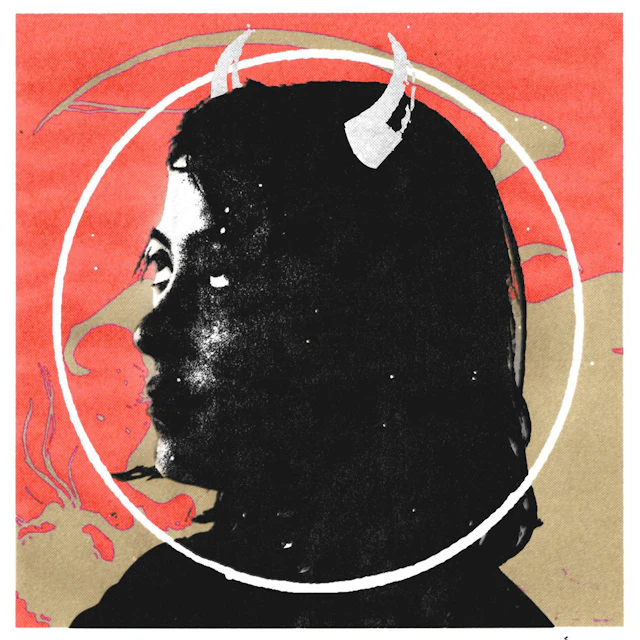
- 1Demons
- 2Early
- 3Hide
- 4Honey
- 5Jacket
- 6Luggage
- 7Naadam
- 8Ocean
- 9Pikumen
DCR070
•
Open edition
The ‘Memory Palace’ or ‘the method of loci’ is an ancient technique of memory enhancement, where one creates an imaginary location to house personal images and experiences. On Elmo Aoyama’s extraordinary Demons, her first record in six years, the Sydney musician has constructed her own icy palace of dark, brooding synth-pop, where each song opens up a door to an experience of climate anxiety, natural wonder, magical travel and mental anguish. “I’m interested in time as a vessel that we travel through,” says Aoyama about the record.
Written and recorded over ten years, in a prolific period of travel across Australia, China, Mongolia and Vietnam, Demons vibrates with a restless, journeying spirit; evoking ideas of migration, portals and ghosts through its sound, which toggles between narcotic, stretched-out synth-pop and hypnotic, fuzzy dance music. The record’s sound (and her live set up of synthesisers, samplers and microphones) was partially informed by a period spent in Vietnam, where Aoyama saw Saigon punk bands play nightclub sets, which incorporated electronics and elements of performance art. Inspiration also came from nature and animals—the clanking of horses’ hooves during a race in Mongolia, the image of fishing birds following a ferry in the harbour of Sydney.
These influences can be felt in propulsive new single “Early” which whirs together slinky 80s synths, shuddering drum beats and industrial glitches. The song is a sweat-inducing kiss-off, detailing the horror of early morning shifts and the catharsis of having your freedom—and time—restored. “It's all about quitting your job. I wrote it after I quit working at a bakery, where I was always late to my morning shifts. I’m definitely not a morning person. I’m more of a night owl.” A similar triumph farewell alights “Hide” a bouncy electro pop song about a final goodbye between lovers. “Our time is up / there’s nothing left to feel” Aoyama sings in a curt fury, as if she’s actually physically fleeing the scene. The song emerged on a train journey from China to Mongolia, where Aoyama encountered strange scenes of mistaken identity and synchronous noodle-slurping.
Ideas of movement and travel sculpt so much of Demons. “Jacket” is a yearning, slithering song about forgoing bodily inhibitions and giving yourself over to pleasure. “Luggage” is an absurdist ode to an elliptical journey involving forgotten luggage and a near-death accident on the road. “Naadam” , named after the Summer sports festival of Mongolia, probes tourist hypocrisy and their aversion to change. Meanwhile “Ocean” is an unnerving anthem about our dwindling capacity to halt the collapse of marine ecosystems.
Despite all this roaming, Demons still manages to find time for introspection and care. Title track “Demons” explores how inner torments haunt, through a composition of shadowy instrumentation, swirling vocals and Tokyo siren samples, while the dreamy ballad “Honey” is about trying to lift a loved one out of a pit of despair. But solitude is best expressed in the ethereal, ten-minute epic “Pikumin”, which is based on the Nintendo game where the user must play a leaf-like creature tasked with tending to the earth’s wellbeing.
Elmo Aoyama’s breakthrough came in 2020, with the release of her debut EP Spells, which garnered widespread acclaim and a FBi SMAC Award nomination for “Next Big Thing”. She has played alongside Mick Harvey, Nabihah Iqbal and Lydia Lunch. This October and November she is embarking on a tour of China and Japan. In addition to her synth-pop project, Aoyama plays electric violin in Sydney post-punk outfit Fully Feudal, and was a band member of guitar-pop group Big White.
Written and recorded over ten years, in a prolific period of travel across Australia, China, Mongolia and Vietnam, Demons vibrates with a restless, journeying spirit; evoking ideas of migration, portals and ghosts through its sound, which toggles between narcotic, stretched-out synth-pop and hypnotic, fuzzy dance music. The record’s sound (and her live set up of synthesisers, samplers and microphones) was partially informed by a period spent in Vietnam, where Aoyama saw Saigon punk bands play nightclub sets, which incorporated electronics and elements of performance art. Inspiration also came from nature and animals—the clanking of horses’ hooves during a race in Mongolia, the image of fishing birds following a ferry in the harbour of Sydney.
These influences can be felt in propulsive new single “Early” which whirs together slinky 80s synths, shuddering drum beats and industrial glitches. The song is a sweat-inducing kiss-off, detailing the horror of early morning shifts and the catharsis of having your freedom—and time—restored. “It's all about quitting your job. I wrote it after I quit working at a bakery, where I was always late to my morning shifts. I’m definitely not a morning person. I’m more of a night owl.” A similar triumph farewell alights “Hide” a bouncy electro pop song about a final goodbye between lovers. “Our time is up / there’s nothing left to feel” Aoyama sings in a curt fury, as if she’s actually physically fleeing the scene. The song emerged on a train journey from China to Mongolia, where Aoyama encountered strange scenes of mistaken identity and synchronous noodle-slurping.
Ideas of movement and travel sculpt so much of Demons. “Jacket” is a yearning, slithering song about forgoing bodily inhibitions and giving yourself over to pleasure. “Luggage” is an absurdist ode to an elliptical journey involving forgotten luggage and a near-death accident on the road. “Naadam” , named after the Summer sports festival of Mongolia, probes tourist hypocrisy and their aversion to change. Meanwhile “Ocean” is an unnerving anthem about our dwindling capacity to halt the collapse of marine ecosystems.
Despite all this roaming, Demons still manages to find time for introspection and care. Title track “Demons” explores how inner torments haunt, through a composition of shadowy instrumentation, swirling vocals and Tokyo siren samples, while the dreamy ballad “Honey” is about trying to lift a loved one out of a pit of despair. But solitude is best expressed in the ethereal, ten-minute epic “Pikumin”, which is based on the Nintendo game where the user must play a leaf-like creature tasked with tending to the earth’s wellbeing.
Elmo Aoyama’s breakthrough came in 2020, with the release of her debut EP Spells, which garnered widespread acclaim and a FBi SMAC Award nomination for “Next Big Thing”. She has played alongside Mick Harvey, Nabihah Iqbal and Lydia Lunch. This October and November she is embarking on a tour of China and Japan. In addition to her synth-pop project, Aoyama plays electric violin in Sydney post-punk outfit Fully Feudal, and was a band member of guitar-pop group Big White.
